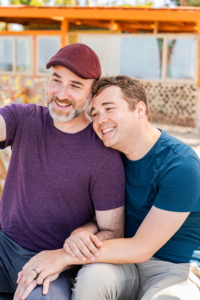News stories share feats of inner strength from frontline healthcare professionals, scientists working on vaccines and cures, and essential workers who ensure people’s basic needs are fulfilled. Yet, there are many others who step up to extend a hand out of the spotlight. They buy groceries for at-risk neighbors, make calls to isolated individuals, donate to ensure a family can buy food for a week. All of these acts, splashy or quiet, helping many or just one, are adding up to impact millions of lives.
In this second week of the Omer, we focus on gevurah, our strength, power, discipline. But this is not about raw strength or wielding power. Gevurah is a grounded fortitude that comes with using judgment and knowing limits. In gevurah, we especially recognize that small gestures have immense power to do good. This even applies to our mundane decisions, which seem to have much higher stakes these days.
When to leave the house, whether to cook or order in, how much news to consume, to buy toilet paper this shopping trip? Add to these the new choices we have faced: when to stop seeing loved ones in person, whether to outsource childcare, how to support local business, nonprofits, and people in need. Weighing heaviest are unexpected decisions around conserving resources, seeking healthcare, sustaining organizations, and more.
These everyday decisions feel so consequential because they could preserve medical resources and save lives. We are confronted with the fact that even our minor choices affect others as much as they do ourselves.
Making all of these decisions, though exhausting, employs and tests our judgment, building resilience and experience. To navigate uncertainty, relying on moral boundaries and facts feeds our conviction and empowerment.
Yom Hashoah, Israel’s Holocaust Remembrance Day, falls during this week. As it happens, the full name in Hebrew is Yom Hazikaron laShoah ve-laGevurah (Holocaust and Heroism Remembrance Day). The chosen date for Yom Hashoah is the anniversary of the Warsaw Ghetto Uprising, a symbol of utmost strength and will to survive.
This uprising was one of the largest resistance efforts during the Holocaust. But commemorating this event also honors the countless smaller struggles and schemes to save even one life, and many did ensure people survived. People shared their scarce food so others would not starve, snuck supplies to those in captivity, found jobs for prisoners in the camps, and risked their own lives to hide people and belongings. We recognize the gevurah, tenacious efforts across the spectrum from so many to protect themselves and others, even as we mourn devastating loss on Yom Hashoah.
From this ultimate example of gevurah, we grasp the mightiness in millions of people’s calculated actions – great and small – to do what was right. We can translate it to the potential power of our daily decisions now. We hope that making tough choices, all-consuming and even trivial, will make us more resilient and pave the way to a more secure future.
Actions and questions to consider this week:
- Who is someone you consider to be a savvy decision-maker? Consider reaching out to them for advice on easing the process.
- Write down decisions you have had to make during quarantine. Are there similarities in how you made them? Common themes? Is there anything you want to focus on when you have to confront choices in the future?
- What choices did you face before the pandemic that you don’t have to struggle with now?
- If you would like to contribute to assist people who are struggling during this time, but are not sure how to pick an organization to support, consult this decision tree for tips and reach out to us if you would like further guidance.
Today we count ten days, which is one week and three days of the Omer.
Written by
Chaya Gilboa, Director of Jewish Engagement
Jessica Kort, Director of Communications and Strategy
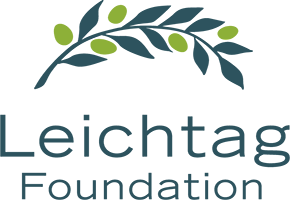

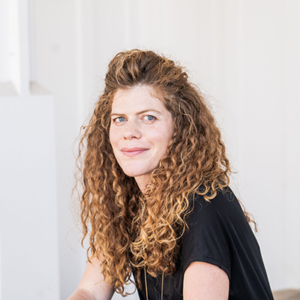
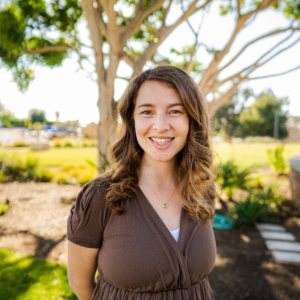


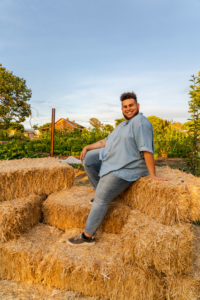 Black, Jewish and Queer. These three identities weave the fabric of who I am, but it took a long time to believe that they could exist together.
Black, Jewish and Queer. These three identities weave the fabric of who I am, but it took a long time to believe that they could exist together.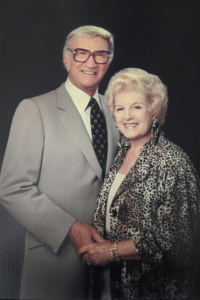 Lee and Toni Leichtag established the Leichtag Foundation in 1991 following the sale of their business. Lee and Toni were lifelong entrepreneurs with a passion for innovation and for supporting talent. They believed that only with big risk comes big reward. Both born to families in poverty, Toni to a single mother, they strongly believed in helping those most in need and most vulnerable in our community. While they supported many causes, their strongest support was for young children and the elderly, two demographics who particularly lack voice in our society.
Lee and Toni Leichtag established the Leichtag Foundation in 1991 following the sale of their business. Lee and Toni were lifelong entrepreneurs with a passion for innovation and for supporting talent. They believed that only with big risk comes big reward. Both born to families in poverty, Toni to a single mother, they strongly believed in helping those most in need and most vulnerable in our community. While they supported many causes, their strongest support was for young children and the elderly, two demographics who particularly lack voice in our society.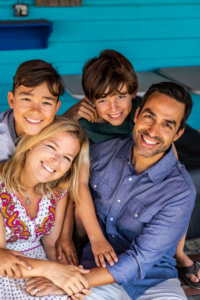 Lifelong Baltimoreans, Rabbi George and Alison Wielechowski and their sons, 11-year-old Lennon and 9-year-old Gideon, are more than pursuing the good life in Southern California. Having moved to San Diego more than three years ago, they are fulfilling a lifelong dream.
Lifelong Baltimoreans, Rabbi George and Alison Wielechowski and their sons, 11-year-old Lennon and 9-year-old Gideon, are more than pursuing the good life in Southern California. Having moved to San Diego more than three years ago, they are fulfilling a lifelong dream.
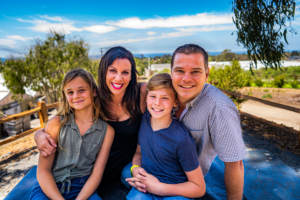
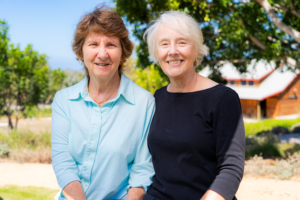

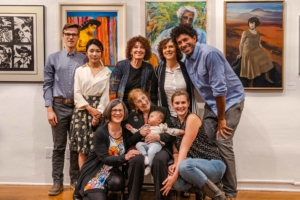
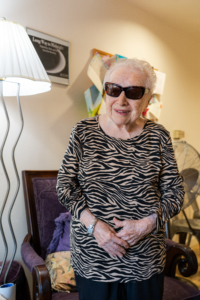
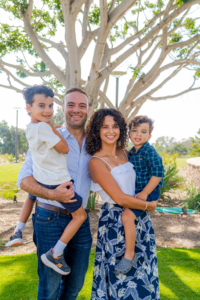
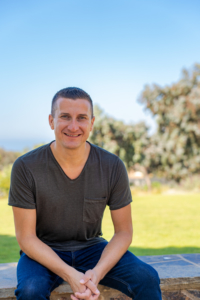 You would think that as the executive director of San Diego LGBT Pride, Fernando Zweifach López Jr., who uses the pronoun they, has done all the coming out they possibly can. A queer, non-binary individual who has worked for many years on civil rights issues, López also speaks openly and often about their father’s family, Mexican-American migrant workers who tilled the fields of rural California.
You would think that as the executive director of San Diego LGBT Pride, Fernando Zweifach López Jr., who uses the pronoun they, has done all the coming out they possibly can. A queer, non-binary individual who has worked for many years on civil rights issues, López also speaks openly and often about their father’s family, Mexican-American migrant workers who tilled the fields of rural California.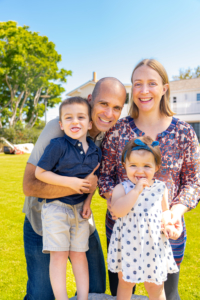 Stacie and Jeff Cook understand commitment. They live it.
Stacie and Jeff Cook understand commitment. They live it.